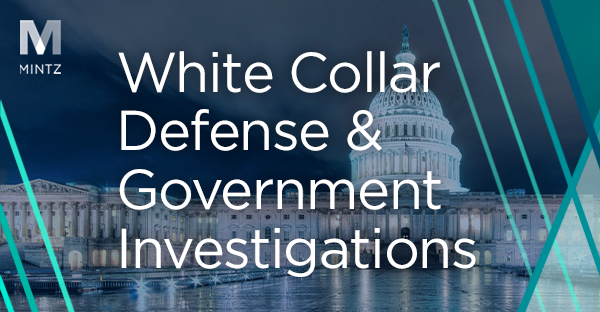Listen to the article
In a significant development for trade enforcement, the United States Court of Appeals for the Ninth Circuit has upheld a multimillion-dollar False Claims Act verdict against a pipe fitting manufacturer accused of evading Chinese import duties. The June 23, 2025 ruling marks the first time a federal appellate court has affirmed a customs-based FCA trial verdict, potentially opening the door to expanded enforcement actions under the Trump administration.
The case centered on competitor Island Industries’ allegations that Sigma Corporation knowingly falsified customs documentation to avoid paying antidumping duties on Chinese imports. According to court documents, Sigma declared on customs forms that its products were not subject to antidumping duties and described them as “steel couplings” despite marketing them as “welded outlets” – products covered by an antidumping duty order on certain Chinese pipe fittings.
A jury previously found Sigma liable for violating the False Claims Act, determining the company owed over $8 million before trebling of damages. The district court denied Sigma’s subsequent motion for judgment as a matter of law or a new trial, prompting the appeal.
In its decision, the Ninth Circuit rejected Sigma’s core argument that a specific customs statute (19 U.S.C. § 1592) should displace the FCA in cases involving evaded customs duties. Instead, the court determined the two statutes could coexist, noting that § 1592 does not explicitly state it provides an exclusive remedy. The court further pointed to FCA language that explicitly contemplates parallel proceedings with “any alternate remedy available to the Government.”
“The statutory and legislative history of both laws confirm that Congress did not intend § 1592 to be the sole avenue for recovering such duties,” the court reasoned in its opinion.
The ruling also addressed Sigma’s defense regarding intent, with the company arguing it lacked the necessary scienter because its interpretation of the duty requirements was objectively reasonable. The court dismissed this argument, citing the 2023 Supreme Court decision in United States ex rel. Schutte v. SuperValu, Inc., which established that a defendant’s subjective beliefs are what matter in FCA cases – not whether an objectively reasonable interpretation could later be constructed.
Industry analysts note this decision could significantly impact trade enforcement, particularly for companies importing goods from China. With U.S.-China trade tensions remaining high, importers now face heightened scrutiny and potentially steeper penalties for misrepresentations on customs documentation.
The ruling also represents a major win for whistleblowers. Under the traditional customs enforcement statute (§ 1592), only the government can initiate action, with whistleblower rewards capped at $250,000. The FCA pathway offers substantially higher potential recoveries for those who expose customs fraud.
This development aligns precisely with the new Trump administration’s stated enforcement priorities. The Department of Justice’s Criminal Division recently identified trade and customs fraud as a top enforcement target. Attorney General Pamela Bondi has publicly affirmed her commitment to defending the constitutionality of the FCA, while DOJ leadership has signaled plans to “aggressively” utilize the statute.
A June 11 memorandum outlining enforcement priorities for DOJ’s Civil Division specifically mentions using the FCA to achieve multiple objectives beyond traditional fraud cases, including targeting discrimination by entities receiving federal funds and pursuing false claims for certain healthcare services.
Legal experts advise that companies engaged in international trade should immediately reassess their compliance frameworks in light of this decision. The ruling underscores the need for robust internal reporting mechanisms and thorough customs documentation practices.
“This case demonstrates the government’s expanding toolkit for trade enforcement,” said one international trade attorney who requested anonymity to speak candidly. “Companies need to understand that misrepresentations on customs forms can now trigger not just traditional customs penalties but potentially much more severe FCA liability.”
The case is Island Industries, Inc. ex rel v. Sigma Corp. et al., No. 22-55063 (9th Cir. Jun. 23, 2025).
Fact Checker
Verify the accuracy of this article using The Disinformation Commission analysis and real-time sources.




12 Comments
This is an important victory for trade enforcement, but I wonder if it will have any unintended effects on domestic producers’ competitiveness. We’ll have to see how it plays out.
That’s a valid concern. The goal should be fair and transparent trade, not tilting the playing field too far in one direction.
As a copper/base metals investor, I’m curious to see if this ruling leads to increased scrutiny and enforcement actions in that sector. Import duties can have a big impact on profitability.
That’s a good point. Metals and mining companies that rely on imported raw materials or equipment will need to closely monitor this development.
While this ruling is a win for domestic producers, I wonder how it will impact importers and distributors. There may be unintended consequences to consider as well.
That’s a fair point. The impact on legitimate importers and the supply chain will be important to monitor going forward.
An $8 million penalty for customs fraud is certainly substantial. This case should serve as a strong deterrent for any companies considering similar practices.
Absolutely, the treble damages really drive home the serious consequences of this type of misconduct. It’s a wake-up call for the industry.
This is an important ruling that could help curb customs fraud and duty evasion. Cracking down on these practices is crucial for fair trade and a level playing field for domestic manufacturers.
Agreed, this sends a strong message that fraudulent customs documentation won’t be tolerated. Proper tariff and duty compliance is essential.
Expanding the False Claims Act to cover customs fraud aligns with the administration’s priorities on trade enforcement. It will be interesting to see if this leads to more cases being brought forward.
Definitely, this ruling could open the door to more customs-related FCA cases. Companies need to be extra diligent in their trade compliance efforts.